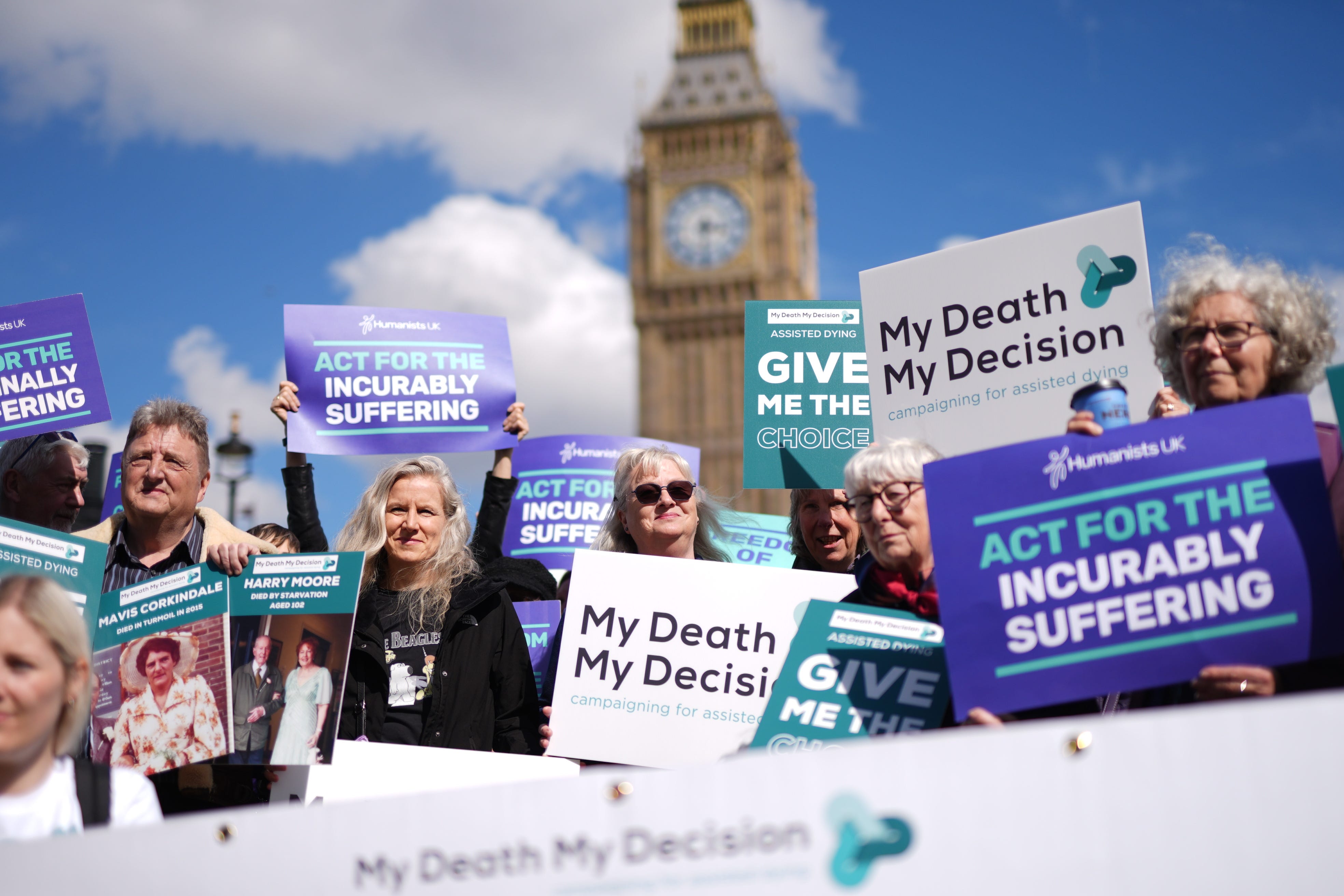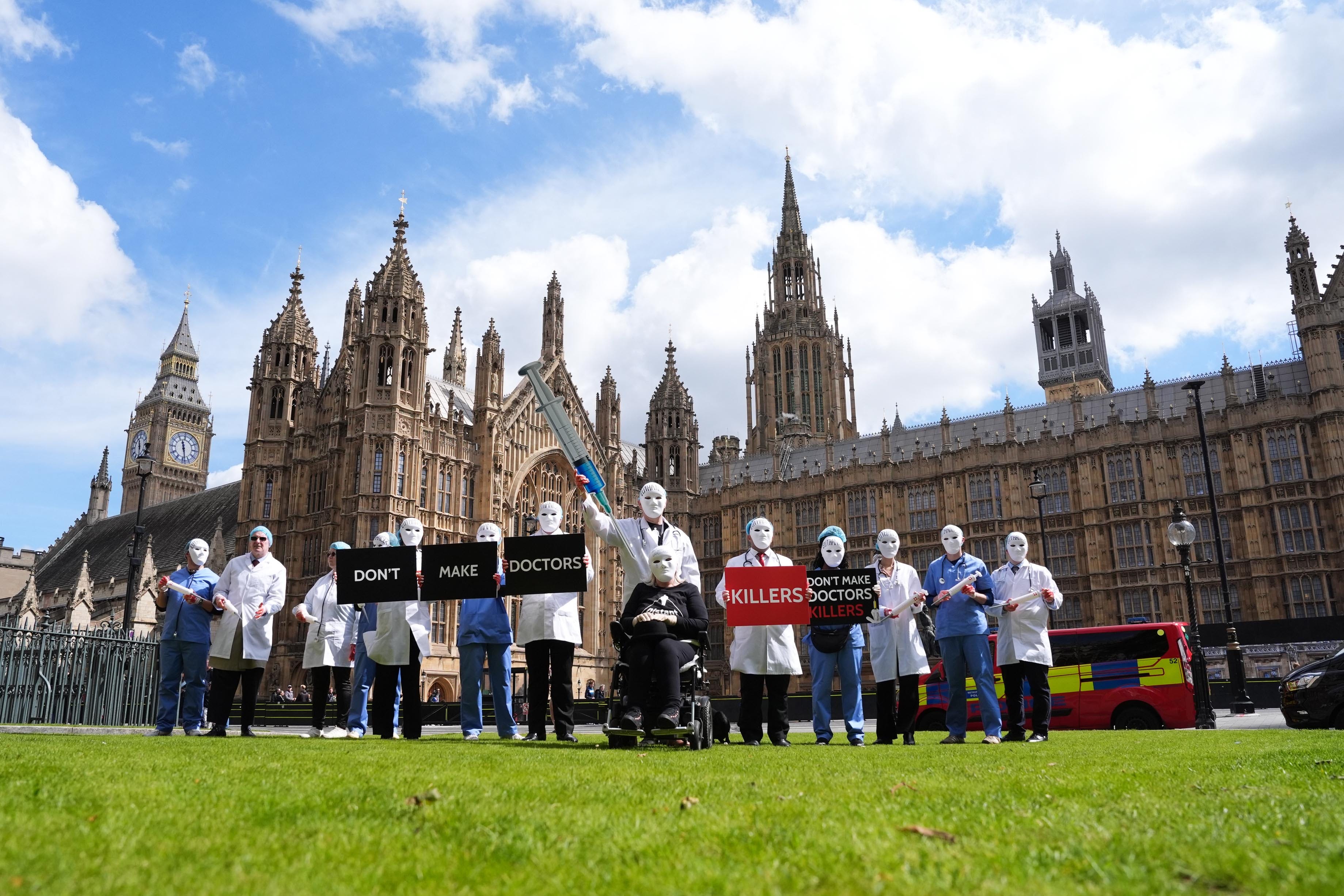What would Dignitas assisted dying law mean for relatives?
MPs debate assisted dying after petition calling for change to UK law hits 200,000
MPs on Monday debated assisted dying after a petition calling for parliament to change the law reached more than 200,000 signatures.
The petition said terminally ill people who were mentally sound and near the end of their lives should “not suffer unbearably against their will.”
Ahead of the debate, Dame Esther Rantzen, the broadcaster and Childline founder, said she had joined Dignitas after being diagnosed with stage four lung cancer.
Dignitas is the national campaign and membership organisation campaigning for change to assisted dying laws across the UK.

Dame Esther, 83, said she was considering travelling to Switzerland for an assisted death as she implored MPs to attend the debate.
She branded the current law, as “not right” and “not ethical”, and has called for a free vote on assisted dying.
What is the current law on assisted dying?
Assisted suicide is banned in England, Wales and Northern Ireland.
A relative or loved one who helps someone else to end their life can be charged with murder or other offences and face a maximum prison sentence of 14 years.
In Scotland, it is not a specific criminal offence but assisting the death of someone can also leave a person open to being charged with murder or other offences.
What could a law change mean?
Pro-change campaigners Dignity in Dying say that assisted dying allows a person with a terminal condition the choice to control their death if they decide their suffering is unbearable.
They argue that, along with good care, dying people who are terminally ill and mentally competent adults deserve the choice to control the timing and manner of their death.

But the campaign group Care Not Killing uses the terms “assisted suicide” and “euthanasia” and argues that the focus should be on “promoting more and better palliative care” rather than any law change.
They say legalising assisted dying could “place pressure on vulnerable people to end their lives for fear of being a financial, emotional or care burden upon others” and argue the disabled, elderly, sick or depressed could be especially at risk.
According to Dignitas, 400 million people around the world have access to assisted dying services, including several states in the US, Canada, New Zealand and Australia.
But Switzerland is perhaps the country most synonymous with assisted dying . Since 1942, Switzerland has allowed assisted suicide as long as the motives are not selfish, although all forms of euthanasia are against the law.
Euthanasia is the act of deliberately ending a person’s life to relieve suffering.
For example, it could be considered euthanasia if a doctor deliberately gave a patient with a terminal illness a drug they do not otherwise need, such as an overdose of sedatives or muscle relaxant, with the sole aim of ending their life.
In England, euthanasia is also illegal and considered manslaughter or murder, carrying a maximum penalty of life imprisonment.
Assisted suicide, meanwhile, is the act of deliberately assisting another person to kill themselves.

Dignitas says that nearly 350 Britons have now ended their lives at Dignitas in Switzerland.
But those who go with their loved one and are present during the process face the risk of prosecution and up to 14 years in prison when they return to the UK.
“It is clear that the current legal situation is unacceptable,” the campaign ground says. “Until this changes and assisted dying is law this injustice will continue.”
Potential changes to the law in the UK could either make assisted dying legal or stop prosecutions against those who are present during the process abroad.
Labour leader Sir Keir Starmer has said he is “committed” to allowing a vote on legalising assisted dying should his party win the general election, while Downing Street has previously said it would be up to parliament whether to again debate legalising assisted dying.
Has assisted dying been debated before?
Yes. An Assisted Dying Bill, which would have allowed some terminally ill adults to ask for medical help to end their life, went before the Commons in 2015 and was rejected by MPs.
There was also a bill proposed in the House of Lords during the 2021/2022 session which reached a second reading in the chamber, while a Westminster Hall debate on assisted dying took place in July 2022.
Protests
Ahead of the debate on Monday, campaigners gathered outside parliament to make their views heard.
Broadcaster Jonathan Dimbleby, who has previously described the current law as “increasingly unbearable” following the death of his younger brother Nicholas, who suffered with motor neurone disease was among those to attend.
He has called for a fully-fledged government debate on assisted dying, saying public opinion is overwhelmingly in favour of change.
“Get off the fence, don’t sit on your hands, have a proper full debate about all the implications, and at the end of that I am sure they will introduce legislation,” he told reporters.
Join our commenting forum
Join thought-provoking conversations, follow other Independent readers and see their replies
Comments
Bookmark popover
Removed from bookmarks